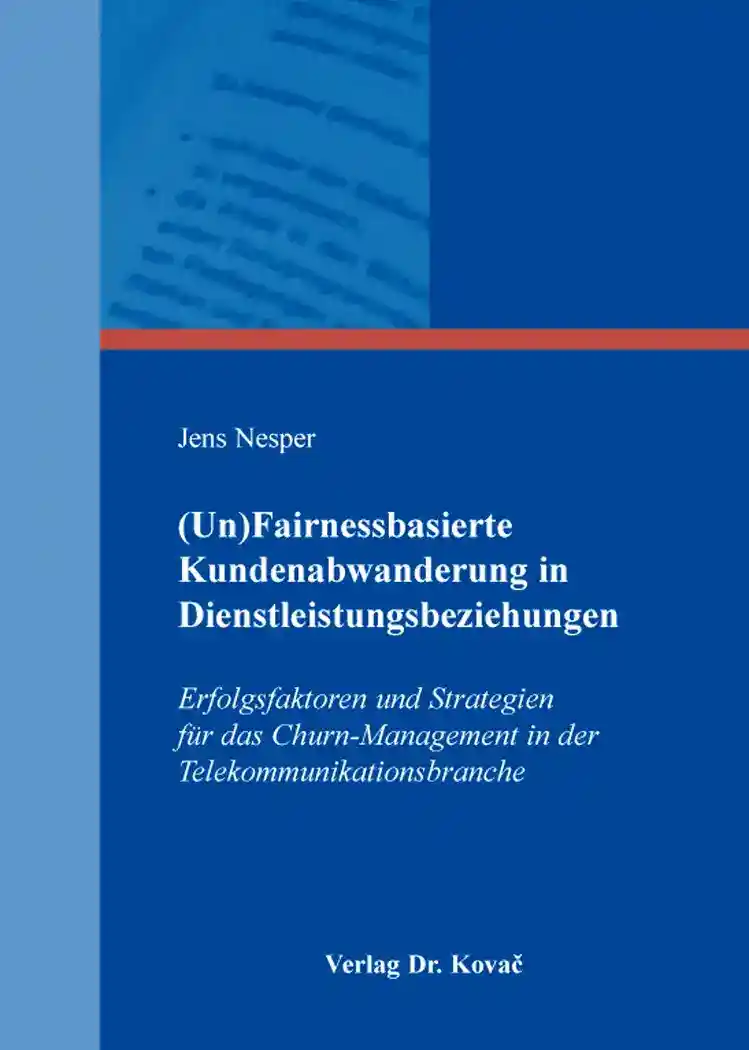Jens Nesper(Un)Fairnessbasierte Kundenabwanderung in Dienstleistungsbeziehungen
Erfolgsfaktoren und Strategien für das Churn-Management in der Telekommunikationsbranche
Innovatives Dienstleistungsmanagement, volume 38
Hamburg 2014, 500 pages
ISBN 978-3-8300-7693-3 (print)
ISBN 978-3-339-07693-9 (eBook)
About this book deutschenglish
Today Customer churn is a central problem for companies. Firstly there are the high costs of customer acquisition; moreover customers which are bound to companies over a longer period generally generate higher profit margins. Cross- and up-selling potential can be realized. Detached from rational reasons such as termination of the relationship by the company or loss of customers due to better prices and terms of competitors, the customer churn is complex and can be ascribed not only to economic reasons. This can be observed on many business-to-consumer (B2C) markets. Due to low changing-barriers and similar service- and quality-levels often a displacement of competitors takes place on many B2C markets. Therefore the customer churn is very high. Hereby the telecommunication industry is not an exception.
In order to map the different facets of customer churn adequately, in this thesis the construct of perceived (un) fairness is used. Customers expect a fair treatment from their telecommunications provider; the evaluation includes a norm of reciprocity and balance. Unethical behavior however is punished by the customer; this punishing behavior shows when the norm of reciprocity is violated. The (Un) fairness judgment hereby refers to the price-performance-ratio (distributive (Un) Fairness), the experienced service production process (procedural (Un) fairness) and the behavior of employees (interactional (un) fairness). All three (un) fairness dimensions thereby reflect the economic and non-economic reasons for customer churn.
For the first time this thesis examines (un) fairness based customer churn in the telecommunications industry. Based on an empirical study the influence of perceived (un) fairness on customers churn and the influence to customers word-of-mouth-behavior will be looked at. Also it is shown that perceived (un) fairness is subject to dynamic influences: in a complaint situation other (un) fairness information is used as in the phase of the actual service provision. It will be proved that perceived (un) fairness changes within the business relationship. Companies must therefore react differently to perceived (un) fairness.
Based on the results of the study recommendations for the churn management in the telecommunication industry are derived. These recommendations are intended to prevent (un) fairness based customer churn successful.
